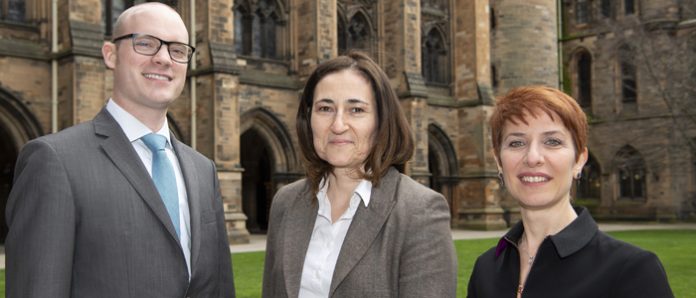Researchers from the University of Glasgow’s Adam Smith Business School are joining forces with the European Space Agency (ESA), the UK Space Agency and telecommunication provider O2 in a new research project to develop a proof-of-concept for the next generation technology needed for driverless cars.
Glasgow researchers Professor Nuran Acur and Dr Stephan von Delft will also work with the University of Oxford, satellite operator Hispasat and start-ups as part of a large-scale project called DARWIN. Project DARWIN aims to test seamless high-speed data connections for driverless cars using the latest generation of mobile communications 5G and satellites.
While the new technology will be developed by engineers based at the Harwell Campus Oxford, the team at the Adam Smith Business School will complement the development and research new business models, technology management and policies needed to successfully commercialise this new technology.
Under ESA’s programme of Advanced Research in Telecommunications Systems (ARTES), which aims to transform research and development investment into successful commercial products and services, a budget of more than €5 million in total, including industry investments, has been allocated for the initial proof-of-concept phase of Project DARWIN.
Dr Stephan von Delft, Senior Lecturer in Strategy at the Adam Smith Business School, who leads research on new business models, said: “I am delighted that our team from the Adam Smith Business School is a partner in this exciting project. We look forward collaborating across disciplines and to engage with corporate partners.”
Professor Nuran Acur, Professor of Innovation Management at the Adam Smith Business School, who leads research on technology management and policy engagement said: “One of University of Glasgow’s progressive values is ‘understanding the past, shaping the digital future’. The Adam Smith Business School will inform policy and practice on the creation and management of innovation ecosystems for connected and autonomous vehicles. The insights we gain in this project will enable us to develop a new agenda for future, cross-disciplinary research in several areas of innovation and technology management.”







